
Settlement: The Heart of Christmas Island
Nestled in the Indian Ocean, Settlement serves as the bustling hub of Christmas Island. This charming town is the perfect blend of natural beauty and rich history. As the island's main settlement, it offers a unique glimpse into the local lifestyle and culture. The town is surrounded by lush rainforests and pristine beaches, making it an ideal destination for nature lovers and adventure seekers alike. One of the standout features of Settlement is its incredible wildlife. The island is famous for its red crab migration, where millions of crabs make their way to the sea to spawn. This natural spectacle is a must-see and can be witnessed around the town. Birdwatchers will also be delighted by the variety of bird species that call the island home, including the rare Abbott's booby. The town itself is steeped in history, with many buildings dating back to the early 20th century. Visitors can explore the diverse cultural influences that have shaped Settlement, from British colonial architecture to Asian-inspired temples. A stroll through the town will reveal a mix of old and new, with quaint shops, local markets, and modern amenities all within walking distance. For those looking to immerse themselves in the local culture, Settlement offers a range of experiences. You can sample fresh seafood at the local eateries, visit the Christmas Island National Park, or take a guided tour to learn about the island's unique ecosystem. The friendly locals are always eager to share their stories and traditions, making every visit a memorable one.
Local tips in Settlement
- Time your visit to coincide with the red crab migration, typically occurring between October and November.
- Bring sturdy walking shoes for exploring the rugged terrain and rainforests around the town.
- Visit the Christmas Island National Park for a guided tour to learn about the island's unique flora and fauna.
- Sample the local seafood, especially the fresh fish and crab dishes, at the town's eateries.
- Don't forget to pack insect repellent, especially if you plan to spend a lot of time outdoors.
Settlement: The Heart of Christmas Island
Nestled in the Indian Ocean, Settlement serves as the bustling hub of Christmas Island. This charming town is the perfect blend of natural beauty and rich history. As the island's main settlement, it offers a unique glimpse into the local lifestyle and culture. The town is surrounded by lush rainforests and pristine beaches, making it an ideal destination for nature lovers and adventure seekers alike. One of the standout features of Settlement is its incredible wildlife. The island is famous for its red crab migration, where millions of crabs make their way to the sea to spawn. This natural spectacle is a must-see and can be witnessed around the town. Birdwatchers will also be delighted by the variety of bird species that call the island home, including the rare Abbott's booby. The town itself is steeped in history, with many buildings dating back to the early 20th century. Visitors can explore the diverse cultural influences that have shaped Settlement, from British colonial architecture to Asian-inspired temples. A stroll through the town will reveal a mix of old and new, with quaint shops, local markets, and modern amenities all within walking distance. For those looking to immerse themselves in the local culture, Settlement offers a range of experiences. You can sample fresh seafood at the local eateries, visit the Christmas Island National Park, or take a guided tour to learn about the island's unique ecosystem. The friendly locals are always eager to share their stories and traditions, making every visit a memorable one.
When is the best time to go to Settlement?
Iconic landmarks you can’t miss
Christmas Island National Park
Explore the breathtaking landscapes and unique wildlife of Christmas Island National Park, a true natural paradise in Australia.
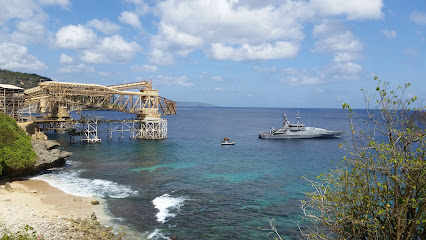
Christmas Island Visitor Centre
Explore the unique beauty of Christmas Island at the Visitor Centre, your starting point for adventure and discovery in this UNESCO Biosphere Reserve.
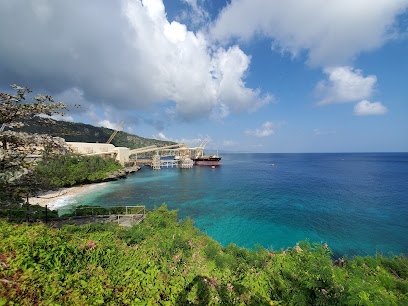
Dolly Beach
Discover the serene beauty of Dolly Beach on Christmas Island, a tropical paradise with crystal-clear waters and vibrant coral reefs, perfect for adventure and relaxation.
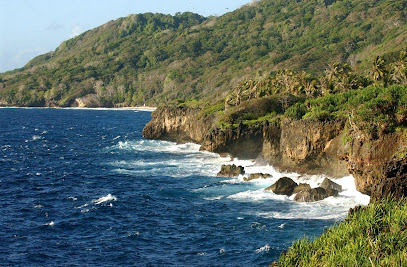
Swell Lodge
Swell Lodge: Experience the ultimate retreat on Christmas Island, where stunning landscapes meet unparalleled tranquility for the perfect getaway.

Ethel Beach
Discover the breathtaking beauty of Ethel Beach on Christmas Island, a tropical paradise perfect for relaxation, snorkeling, and stunning sunsets.
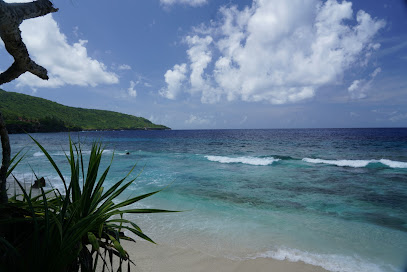
The Sunset
Discover tranquility at The Sunset on Christmas Island, where breathtaking views and nature's wonders await every traveler.

Greta Beach
Experience the tranquil beauty of Greta Beach on Christmas Island, a paradise for sun-seekers and nature lovers alike.
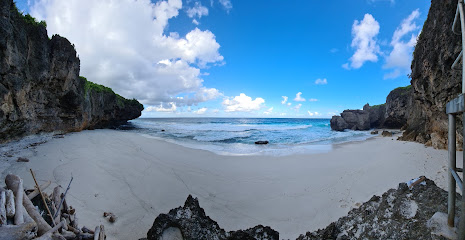
Ma Chor Nui Nui Temple
Explore the serene Ma Chor Nui Nui Temple on Christmas Island, a captivating blend of Taoist and Buddhist spirituality amidst breathtaking natural beauty.
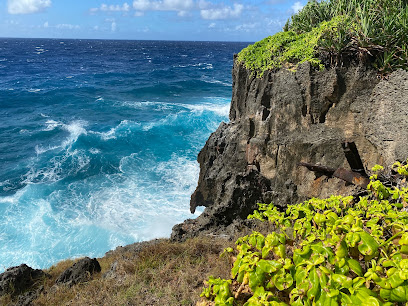
The Dales
Discover The Dales on Christmas Island: A breathtaking blend of natural beauty, lush landscapes, and unique wildlife experiences await you.
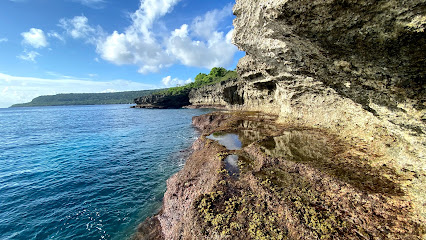
Soon Tien Kong Temple
Explore the serene Soon Tien Kong Temple, a tranquil Taoist retreat on Christmas Island, surrounded by stunning landscapes and rich cultural heritage.
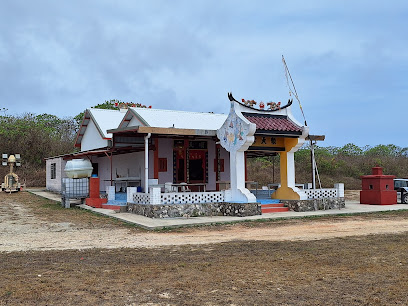
The Pink House Research Station
Discover the unique ecosystems and stunning landscapes at The Pink House Research Station on Christmas Island, a must-visit national park for nature enthusiasts.
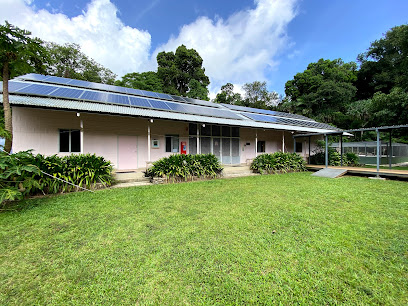
West White Beach
Experience the breathtaking beauty and tranquility of West White Beach, a hidden gem on Christmas Island perfect for relaxation and adventure.
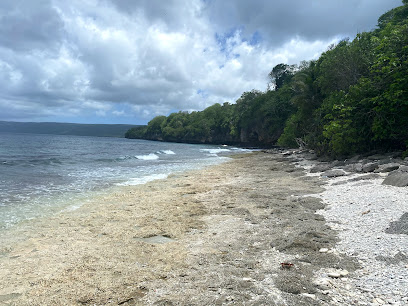
Christmas Island Outdoor Cinema
Experience unforgettable film nights under the stars at Christmas Island Outdoor Cinema, a unique outdoor movie theater surrounded by tropical beauty.
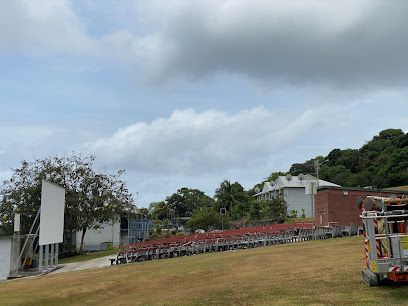
Martin Point
Explore Martin Point on Christmas Island - a breathtaking destination with stunning views, unique wildlife, and rich cultural history.
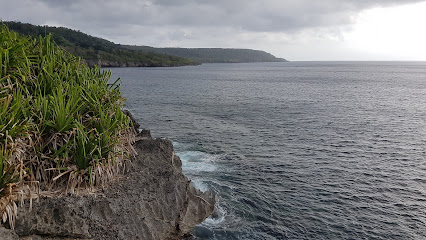
South Point Settlement Remains
Discover the rich history and stunning landscapes of the South Point Settlement Remains on Christmas Island, a hidden gem for history enthusiasts and nature lovers.
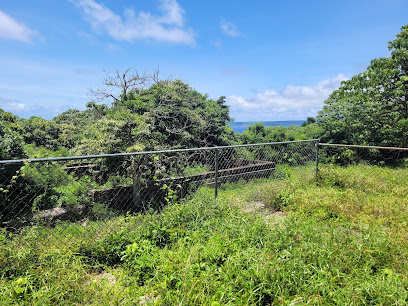
Unmissable attractions to see
Soon Tien Kong Temple
Explore the serene beauty and cultural heritage of Soon Tien Kong Temple in Christmas Island, a hidden gem for spiritual seekers and nature lovers.
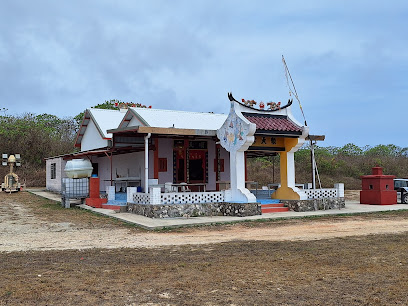
South Point Settlement Remains
Discover the historical significance of South Point Settlement Remains on Christmas Island, where the past comes alive amidst stunning natural beauty.
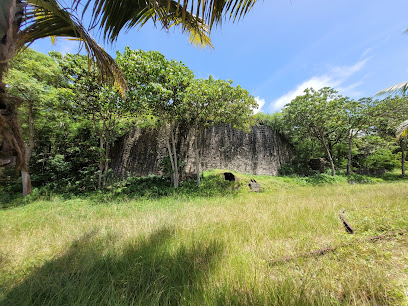
South Point Railway Station
Uncover the rich heritage of Christmas Island at the South Point Railway Station, a scenic historical landmark surrounded by nature's beauty.
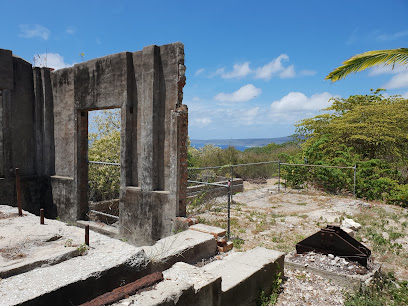
Essential places to dine
The Golden Bosun
Experience tropical bliss at The Golden Bosun – where stunning views meet great drinks on beautiful Christmas Island.
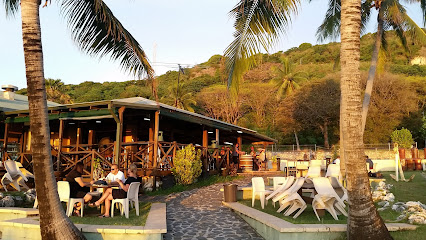
Le CLA Café and Restaurant
Experience authentic Chinese flavors at Le CLA Café & Restaurant in scenic Flying Fish Cove on Christmas Island.
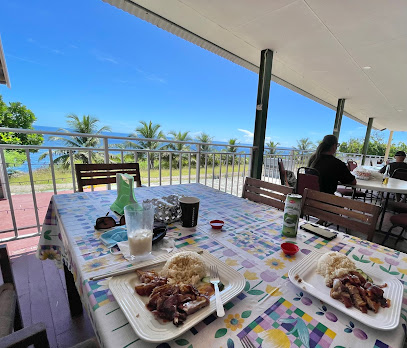
Swell Lodge
Discover tranquility and adventure at Swell Lodge on Christmas Island—your gateway to nature's wonders in a tropical paradise.

Greta Beach
Experience tranquility at Greta Beach - a hidden gem on Christmas Island known for its pristine sands and vibrant marine life.
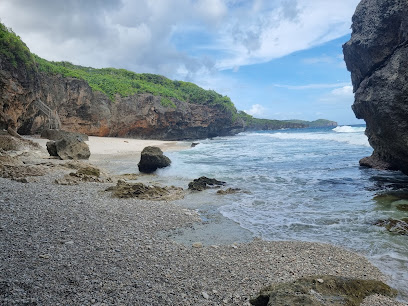
Tracks Tavern
Discover Tracks Tavern on Christmas Island: Enjoy delicious grilled dishes in a friendly atmosphere that celebrates local flavors and island hospitality.
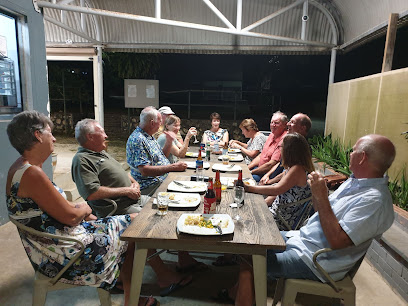
VQ3 Lodge
Discover tranquility at VQ3 Lodge on Christmas Island – where comfort meets nature's wonders.

The Dales
Discover the stunning landscapes and diverse wildlife at The Dales on Christmas Island – a must-visit destination for nature lovers.
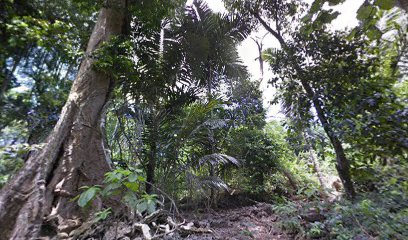
Flying Fish Café
Discover delicious seafood and vibrant local flavors at Flying Fish Café on Christmas Island – a culinary paradise amidst breathtaking scenery.
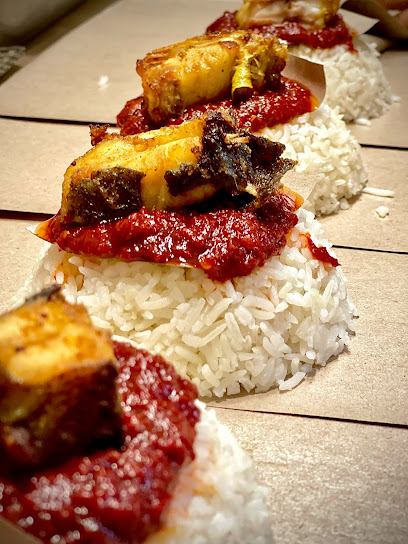
Rumah Tinggi
Discover Rumah Tinggi on Christmas Island: A unique pub experience blending local culture with delightful cuisine.
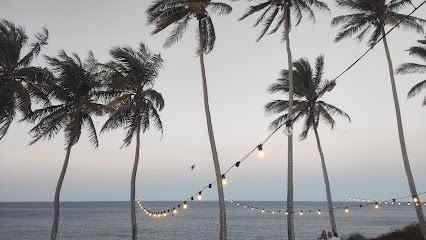
Captain's Lookout
Experience unparalleled serenity at Captain's Lookout, a beautiful villa offering breathtaking ocean views on Christmas Island.
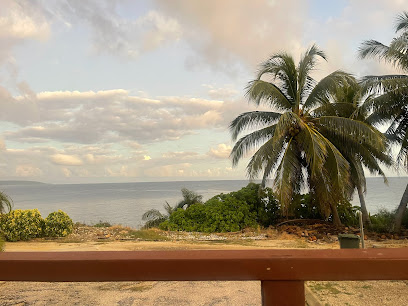
Markets, malls and hidden boutiques
Christmas Island National Park
Discover the breathtaking landscapes and unique wildlife of Christmas Island National Park, a remote paradise in the Indian Ocean.
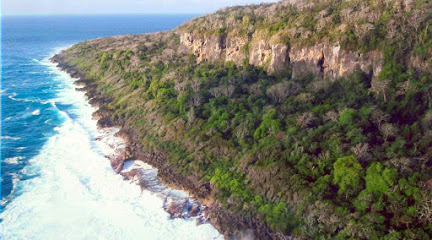
Christmas Island Visitor Centre
Discover the wonders of Christmas Island at the Visitor Centre - your gateway to nature, culture, and adventure in this tropical paradise.
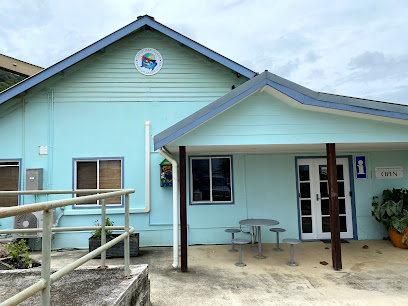
Dolly Beach
Explore Dolly Beach, a serene paradise on Christmas Island, where pristine sands meet vibrant coral reefs in an untouched natural setting.
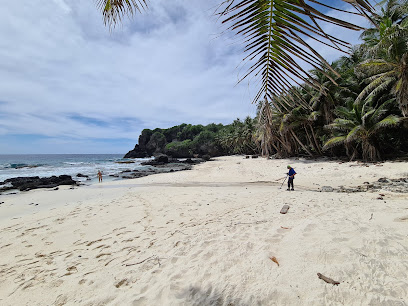
Swell Lodge
Experience the tranquility of Swell Lodge on Christmas Island, where stunning natural beauty meets modern comfort in an unforgettable setting.

Ethel Beach
Ethel Beach: A Hidden Gem on Christmas Island, Perfect for Beach Lovers and Nature Enthusiasts Alike.
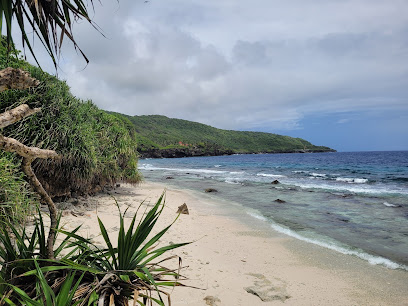
The Sunset
Discover tranquility and adventure at The Sunset Hotel, your gateway to the stunning landscapes and vibrant culture of Christmas Island.

Greta Beach
Discover the enchanting beauty of Greta Beach in Christmas Island, where pristine sands and vibrant marine life await every traveler.
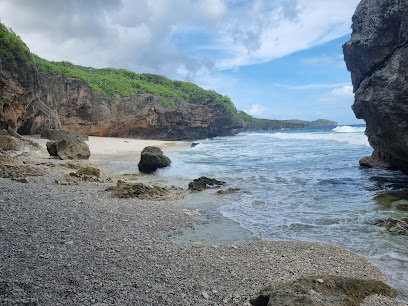
Christmas Island Wet 'n' Dry Adventures
Dive into the vibrant marine life of Christmas Island with Wet 'n' Dry Adventures, your premier dive shop for unforgettable underwater experiences.
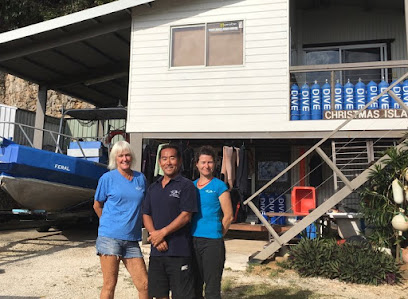
The Dales
Explore The Dales, a natural paradise on Christmas Island, where lush landscapes and unique wildlife await every adventurer.
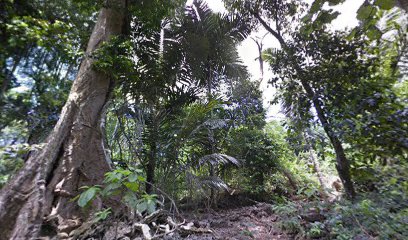
Christmas Island Supermarket
Explore the best of local flavors and everyday essentials at Christmas Island Supermarket, your one-stop shop while visiting this tropical paradise.
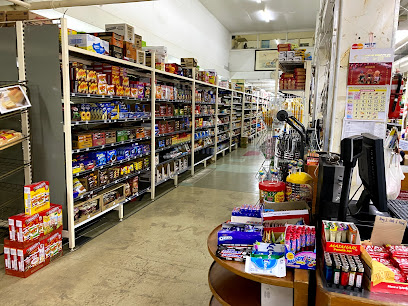
Hibiscus House
Experience comfort and adventure at Hibiscus House, your perfect self-catering retreat on beautiful Christmas Island.
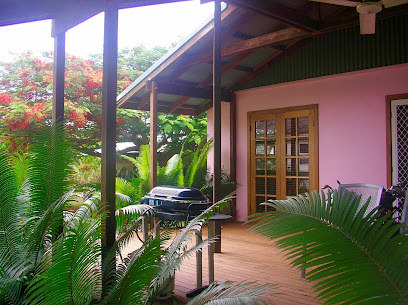
SeaSpray Villa
Discover the serene beauty and vibrant landscapes of Christmas Island from the comfort of SeaSpray Villa, your perfect self-catering getaway.
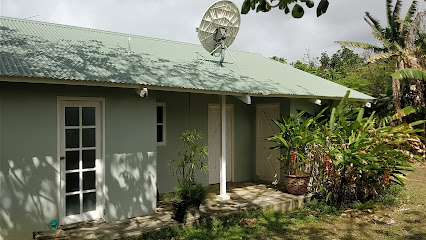
Christmas Island Bakery
Discover authentic flavors at Christmas Island Bakery, where fresh baked goods and island charm come together for a unique culinary experience.
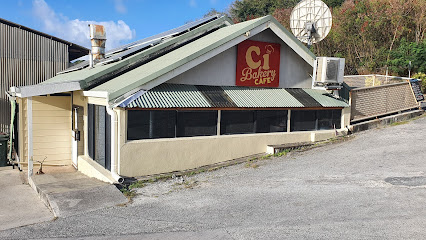
The Captain's Cabin and Retreat
Experience unparalleled comfort at The Captain's Cabin and Retreat, your ideal self-catering accommodation on the breathtaking Christmas Island.
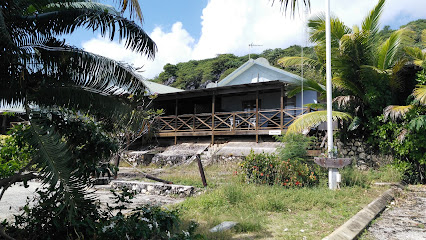
Red Crab Surf
Experience the vibrant surf culture of Christmas Island at Red Crab Surf, your go-to store for surf apparel and island vibes.
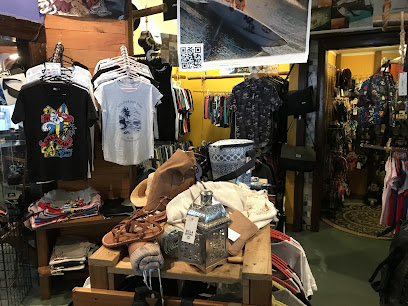
Essential bars & hidden hideouts
The Golden Bosun
Experience the tropical charm of Christmas Island at The Golden Bosun, where refreshing drinks and stunning views await.
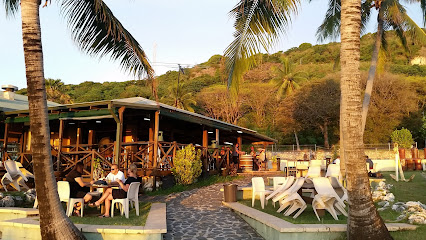
Dolly Beach
Experience the pristine beauty of Dolly Beach, a tranquil haven on Christmas Island, perfect for relaxation, adventure, and breathtaking sunsets.
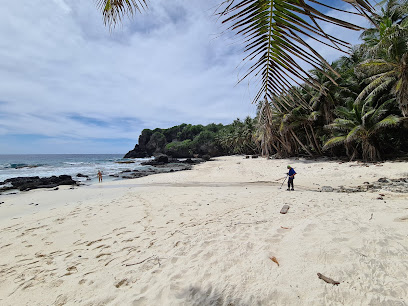
Le CLA Café and Restaurant
Savor the authentic flavors of Chinese cuisine at Le CLA Café and Restaurant in the scenic Christmas Island.
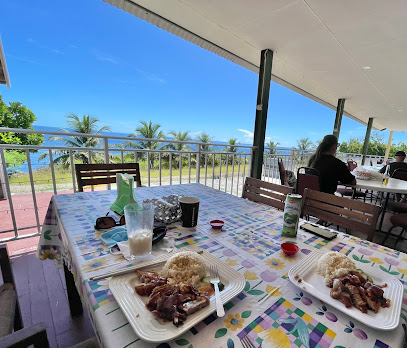
Ethel Beach
Discover the beauty of Ethel Beach on Christmas Island, a serene escape with stunning landscapes and vibrant marine life.
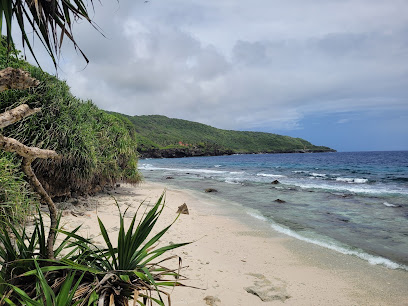
The Sunset
Experience the serene charm of The Sunset Hotel on Christmas Island, where breathtaking views and comfort blend seamlessly.

Greta Beach
Explore the stunning Greta Beach on Christmas Island, a serene escape with vibrant marine life and breathtaking natural beauty.
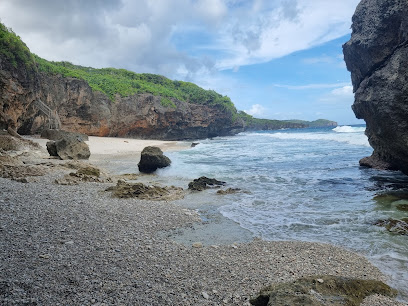
Idah Kitchen
Experience the flavors of Christmas Island at Idah Kitchen, where local seafood meets a warm and inviting atmosphere.
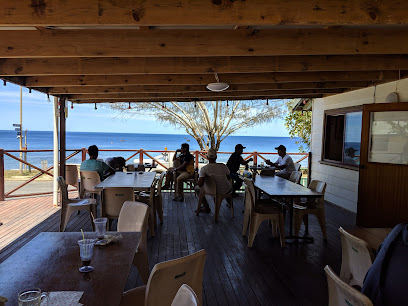
Tracks Tavern
Savor the vibrant flavors of Christmas Island at Tracks Tavern, where local cuisine meets a lively atmosphere for an unforgettable dining experience.
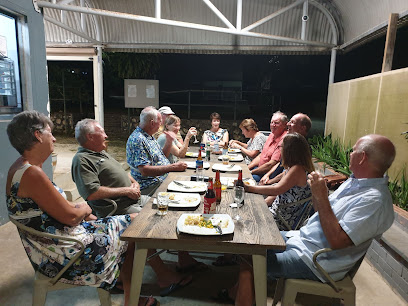
The Dales
Explore the breathtaking landscapes and rich biodiversity of The Dales, a must-visit tourist attraction on Christmas Island.
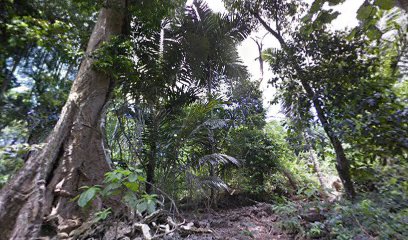
The Cocos Padang Lodge
Experience the beauty of Christmas Island at Cocos Padang Lodge, the perfect self-catering accommodation for your tropical getaway.

Flying Fish Café
Discover the flavors of Christmas Island at Flying Fish Café, where fresh seafood and local cuisine come together in a picturesque setting.
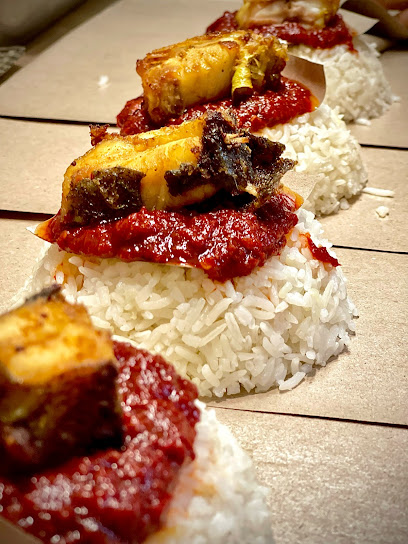
Poon Saan Coffee Shop
Discover the delightful Poon Saan Coffee Shop on Christmas Island, where great coffee and local charm create an unforgettable experience.
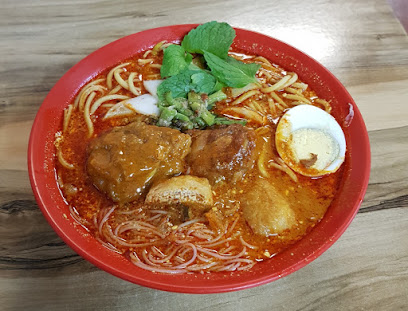
SeaSpray Villa
Discover the beauty of Christmas Island at SeaSpray Villa, your self-catering haven for adventure and relaxation in paradise.
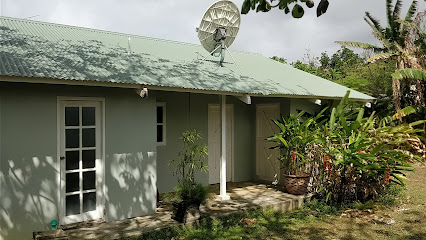
Rumah Tinggi
Discover the vibrant ambiance of Rumah Tinggi, a tropical pub on Christmas Island that offers local flavors and stunning views.
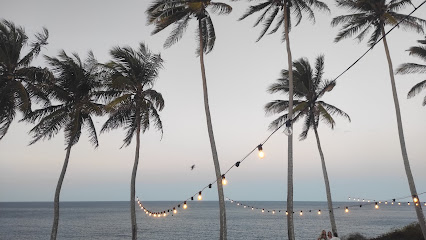
Local Phrases
-
- HelloSalut
[sa-loot] - GoodbyeAurevoir
[oh-re-vwar] - YesOui
[wee] - NoNon
[nohn] - Please/You're welcomeS'il vous plaît/De rien
[seel voo pleh/dee ryen] - Thank youMerci
[mehr-see] - Excuse me/SorryExcusez-moi/Désolé
[ex-kew-zay mwa/day-zo-lay] - How are you?Comment ça va?
[koh-mohn sah vah] - Fine. And you?Bien. Et toi?
[byen/eh twah] - Do you speak English?Parlez-vous anglais?
[par-lay voo ahn-glay] - I don't understandJe ne comprends pas
[zhuh nuh kohm-prahnd pah]
- HelloSalut
-
- I'd like to see the menu, pleaseJe voudrais voir la carte, s'il vous plaît
[zhuh voo-dray vwahr lah kart, seel voo pleh] - I don't eat meatJe ne mange pas de viande
[zhuh nuh mahnj pah duh vyand] - Cheers!Santé!
[sahn-tay] - I would like to pay, pleaseJe voudrais payer, s'il vous plaît
[zhuh voo-dray pay-ay, seel voo pleh]
- I'd like to see the menu, pleaseJe voudrais voir la carte, s'il vous plaît
-
- Help!Au secours!
[oh suh-coor] - Go away!Allez-vous en!
[ah-lay voo zahn] - Call the Police!Appelez la police!
[ah-pay-lay lah poh-lease] - Call a doctor!Appelez un médecin!
[ah-pay-lay uhn may-sa-dan] - I'm lostJe suis perdu
[zhuh swee pair-doo] - I'm illJe suis malade
[zhuh swee mah-lahd]
- Help!Au secours!
-
- I'd like to buy...Je voudrais acheter...
[zhuh voo-dray ah-shetay] - I'm just lookingJe regarde juste
[zhuh ruh-gard zhewst] - How much is it?Combien ça coûte?
[kohm-byen sah koot] - That's too expensiveC'est trop cher
[say troh shair] - Can you lower the price?Pouvez-vous baisser le prix?
[poo-vay voo beh-say luh pree]
- I'd like to buy...Je voudrais acheter...
-
- What time is it?Quelle heure est-il?
[kel uhr eh-teel] - It's one o'clockIl est une heure
[eel eh oon uhr] - Half past (10)Dix et demi
[dee ay dem-ee] - MorningMatin
[mah-tahn] - AfternoonAprès-midi
[ah-pray mee-dee] - EveningSoir
[swahr] - YesterdayHier
[yehr] - TodayAujourd'hui
[oh-zhoor dew-ee] - TomorrowDemain
[duh-man] - 1Un
[uhn] - 2Deux
[duh] - 3Trois
[twah] - 4Quatre
[katr] - 5Cinq
[sank] - 6Six
[sees] - 7Sept
[set] - 8Huit
[weet] - 9Neuf
[nuff] - 10Dix
[dee]
- What time is it?Quelle heure est-il?
-
- Where's a/the...?Où est...?
[oo eh] - What's the address?Quelle est l'adresse?
[kel eh la-dress] - Can you show me (on the map)?Pouvez-vous me montrer (sur la carte)?
[poo-vay voo muh mohn-tray (surr lah kart)] - When's the next (bus)?Quand est le prochain (bus)?
[kahnd eh luh proh-shain (bus)] - A ticket (to ....)Un billet (pour ....)
[uhn bee-yay (poor)]
- Where's a/the...?Où est...?
History of Settlement
-
Christmas Island was discovered on Christmas Day, 1643, by Captain William Mynors of the Royal Mary, an English East India Company vessel. The island remained largely uninhabited until the late 19th century when the British annexed it in 1888. The small settlement of 'Settlement' began to take shape as a strategic point for colonial interests.
-
In 1899, George Clunies-Ross, a Scottish businessman, discovered rich phosphate deposits on Christmas Island. This led to the establishment of phosphate mining operations, with Settlement becoming the central hub for mining activities. The influx of workers from China, Malaysia, and Singapore transformed the area into a bustling, multicultural community.
-
During World War II, Christmas Island and Settlement were occupied by Japanese forces from 1942 to 1945. The island's strategic position and phosphate resources made it a target. The local population endured hardships, and the infrastructure suffered significant damage. The end of the war saw the British reclaiming the island and initiating rebuilding efforts.
-
After World War II, the British resumed phosphate mining operations and began developing infrastructure in Settlement, including schools, medical facilities, and housing. In 1958, Christmas Island was transferred to Australian sovereignty, and self-governance was introduced. The local administration focused on improving living conditions and diversifying the economy.
-
Today, Settlement is a vibrant community reflecting the diverse cultural heritage of its inhabitants. The legacy of phosphate mining remains evident, but the area has also embraced tourism, driven by its unique natural beauty and rich history. The island's flora and fauna, particularly the red crab migration, attract visitors from around the world, making Settlement a key point of interest.
Settlement Essentials
-
Settlement in Christmas Island is accessible primarily by air. The island is served by Christmas Island Airport (XCH), which receives flights from Perth, Australia, and occasionally from other regional destinations. From the airport, you can take a taxi or rental car to reach Settlement, which is approximately a 20-minute drive away.
-
Transportation within Settlement is limited, so renting a car is the most convenient option for exploring the area. Taxis are also available but may require booking in advance, especially during peak tourist seasons. There is no public bus system, but some hotels provide shuttle services to key attractions and the airport.
-
The official currency on Christmas Island is the Australian Dollar (AUD). Credit cards are widely accepted in hotels, restaurants, and larger shops, but it's advisable to carry some cash for smaller establishments and local markets. ATMs are available in Settlement, but it’s a good idea to withdraw enough cash before arriving, as machines can occasionally run out of money.
-
Settlement is generally a safe destination for tourists. However, as with any travel location, it's important to stay vigilant. Avoid walking alone at night and be cautious with your belongings in crowded areas. There are no specific high-crime areas targeting tourists, but it's always wise to stay aware of your surroundings.
-
In case of an emergency, dial 000 for immediate assistance on Christmas Island. The island has a hospital and a police station located in Settlement. Ensure you have travel insurance that covers medical emergencies. For minor health issues, pharmacies are available where you can purchase over-the-counter medications.
-
Fashion: Do wear lightweight, casual clothing suitable for a tropical climate. Avoid overly revealing attire. Religion: Do respect local customs, especially if visiting places of worship. Public Transport: Do use hotel shuttle services where available. Don't expect a public bus system. Greetings: Do greet locals with a friendly 'hello' or a handshake. Eating & Drinking: Do try local dishes and fresh seafood. Don’t refuse food if offered by locals, as it is considered impolite.
-
To experience Settlement like a local, visit the local markets where you can buy fresh produce and unique island goods. Engage with the friendly residents, who are often willing to share stories about the island’s history and culture. Don’t miss exploring the natural beauty of the island, including the famous red crab migration and the pristine beaches. For a unique experience, take a guided tour of the island's natural and historical sites.
Trending Landmark in Settlement
-
Christmas Island National Park
-
Christmas Island Visitor Centre
-
Dolly Beach
-
Swell Lodge
-
Ethel Beach
-
The Sunset
-
Greta Beach
-
Ma Chor Nui Nui Temple
-
The Dales
-
Soon Tien Kong Temple
-
The Pink House Research Station
-
West White Beach
-
Christmas Island Outdoor Cinema
-
Martin Point
-
South Point Settlement Remains
Nearby Cities to Settlement
-
Things To Do in Drumsite
-
Things To Do in Poon Saan
-
Things To Do in Flying Fish Cove
-
Things To Do in Greta Beach
-
Things To Do in Bandung
-
Things To Do in Jakarta
-
Things To Do in Yogyakarta
-
Things To Do in Semarang
-
Things To Do in Surabaya
-
Things To Do in Bali
-
Things To Do in Sentosa
-
Things To Do in Chinatown
-
Things To Do in Marina Bay
-
Things To Do in Clarke Quay
-
Things To Do in East Coast Park










